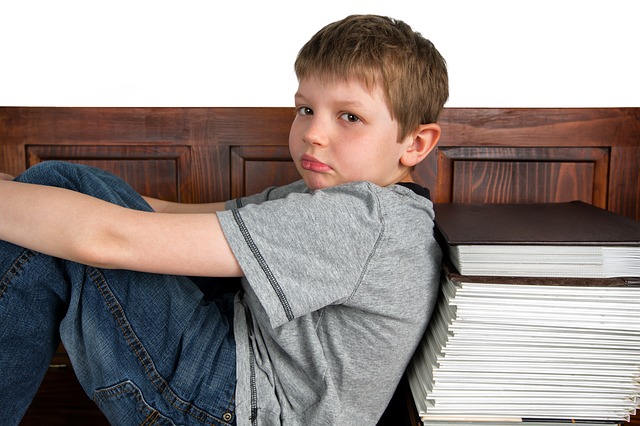
In this series, we will have informal conversations with our resident child psychiatrist, Meredith, covering common questions many parents have about mental health.
[hr]
One of the most common questions I’m asked by parents in the community is, “Does my child have ADHD?”
What is ADHD anyway, and when should a parent be concerned?
ADHD is a chronic condition impacting one’s ability to have sustained focus and attention, and often kids struggle with having hyperactivity and impulsivity.
Some “classic” signs of ADHD include the following:
–My child can’t sit still for more than a few minutes during circle time.
–My child impulsively blurts out answers, has a hard time raising his hand, and can’t wait his turn.
–My child can have intense focus on things he really likes, but can’t even read one line of a book if he’s bored or disinterested.
–My child cannot remember something he just read, and often has to re-read the same sentence over and over to retain it.
–My child struggles socially, has a hard time maintaining friendships, and his friends seem to get annoyed with him easily.
–My child is described as the “class clown,” goofing off often even when it’s inappropriate or has been asked to stop.
–Homework is impossible in our house. It takes 30 minutes just to get my child to sit down, and then she’s constantly doing other things, and it can take an hour to do something that should take 10 minutes.
–My child rushes through his work and makes careless mistakes just to get the work done faster.
–My child gets injured a lot because she’s a risk taker, always jumping off stuff, and is way more active than many of her friends.
–My child is constantly losing his homework and forgets to turn it in even if he did complete it.
–My child seems addicted to screens and has a really hard time putting them down when it’s time to stop.
–My child seems to tune me out, doesn’t hear what I’m saying, and often has a hard time following the conversation.
–My child cannot follow more than one or two step commands.
–My child talks excessively and can sometimes be way off topic or has a hard time following the conversation.
This list is not exhaustive, but these are some common issues that kids with ADHD struggle with. If your child is demonstrating some of the above behaviors and is struggling with his or her wellbeing or ability to learn in school, then it might be worth meeting with a professional.
How does one diagnosis a child with ADHD?
Unfortunately, there’s no magic blood test we can perform to diagnosis ADHD. Essentially, if your child has a certain number of symptoms in each “cluster” (i.e. inattention, hyperactivity, or combined) AND they show signs of impairment in at least two separate environments (usually school, home, social situations, and/or emotional regulation), then your child would meet criteria for the diagnosis. These symptoms have to be present across multiple environments, which means assessments from teachers or another environment outside of the home are required to make the diagnosis. Most teachers I work with have a wealth of experience with these assessments and are pretty astute when a child is struggling.
If the initial symptoms checklist results are ambiguous, then your pediatrician or child psychiatrist might encourage neuro-psychiatric testing from a psychologist. This is a much more intensive testing environment that is multi-faceted, including screening for executive functioning deficits, working memory, focus, time to complete tests, dyslexia, learning differences, etc.
What does ADHD treatment look like?
Treatment for ADHD is multi-faceted because ADHD affects all realms of a child’s life. There’s not one easy or simple solution.
Medication: The gold standard treatment for children with ADHD older than age 7 is a stimulant. Stimulants, known as methylphenidate or amphetamines, get a bad rap; however, when used appropriately they can be life-changing for a child or teen. A child psychiatrist can give you lots of information on whether a stimulant would be helpful for your child, as well as review the risks and benefits for your specific situation.
Behavioral therapy: This is a crucial element of treatment for a child with ADHD. This can take many forms, including cognitive-behavioral therapy, social skills training, and parent education. Children with ADHD are more likely to have low self-esteem and are more susceptible to both anxiety and depression, so providing these treatments significantly improve their outcomes.
Academic interventions: I also strongly encourage parents to consider having a 504 or IEP evaluation (Individualized Education Plan) through their school. This can help the child obtain accommodations necessary to help them function at their absolute best in the academic environment, including having longer time to take tests, extensions on assignments, a quiet environment to take tests, a 1:1 aide to help them stay on task for in-class assignments, headphones in class, etc.
Will my child outgrow ADHD?
ADHD is most often a life-long disorder. We estimate that at least 2/3 of children and teens diagnosed with ADHD will continue to have symptoms throughout adulthood. It is a chronic illness, which is why behavioral and family therapy is so helpful so that kids can learn lifelong skills to help them navigate various stages of life.
So what should I do next?
If this post has you wondering if your child might suffer from ADHD, I urge you to check in with your pediatrician to consider an evaluation. ADHD affects all aspects of one’s life, so early diagnosis and treatment improve academic, social and emotional outcomes long-term.

















What age is appropriate to do a proper evaluation? I’ve been seeing most of these items in our 5 year old, but it makes me wonder if it is just typical 5 year old behavior. His teacher has been mentioning impulsive behavior being a problem for him all year. I just don’t know if it’s too soon to bring it up to his pediatrician.
Hello and thank you for reading and engaging with us. I think if you have some concerns and it might be impacting your child’s ability to learn, it’s always worth looking into. I would start with mentioning it to your pediatrician, who should have vast knowledge of what is “typical” behavior for a 5 year old. They would be unlikely to start medication at this age, however there could be other underlying issues that should be screened for such as any learning differences, sensitivities or sensory issues, anxiety, social/pragmatic struggles, etc that could be contributing to their behavior.